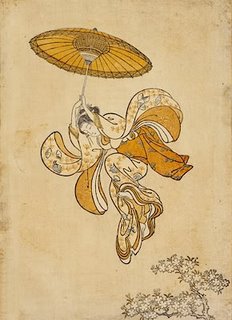
how to find balance
By David Scrimgeour, LAc
It’s 10 o’clock and you don’t know where your life is. You haven’t been sleeping well, and you’ve got a major presentation at work first thing in the morning. Your mother called two hours ago and can’t find hAer hearing aid (that’s the second time today), your daughter’s got a bad cold, and your husband thinks the two of you are growing apart. And you feel like you hit the wall weeks ago.
Sounds extreme, but a patient walks into my acupuncture practice and tells me some variation on this vignette practically every day. She’s physically run-down and emotionally spent. And while she’s aware of the stress in her life, she hasn’t really connected it to the symptoms she’s experiencing—symptoms that tell me she’s suffering from adrenal depletion, what’s commonly known as burnout.
And I’m not the only one who sees this type of patient. The Women to Women Clinic in Yarmouth, Maine, has given thousands of adrenal function tests and reports that only about 1 percent of them come back normal. The other 99 percent indicate some form of adrenal dysfunction—from fatigue to collapse.
Today the rates of burnout, especially in the US and the industrialized world, are growing astronomically as more and more people experience prolonged periods of high stress, exposure to a more toxic environment, a general imbalance in lifestyle (typified by inadequate sleep, too little exercise, and lack of a nourishing diet), and frequent states of being physically exhausted and emotionally overwhelmed. Burnout develops gradually as a person’s vital energy and effectiveness erode into fatigue and, ultimately, a failure to adapt to the changes and stresses of life.
The Fire Within
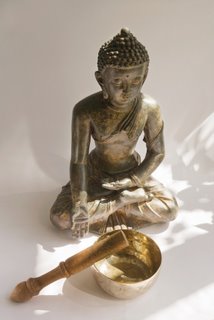
Singing Bowl Alarm Clocks by Now & Zen
Ironically, burnout stems from an exquisite system designed to save us from bodily harm when we come face to face with imminent danger. Here’s the drill: Once your brain senses some kind of menace, your heart starts to race, you can jump or run like never before, you become hypervigilant, and mentally alert—all in an instant. Why? Because your body’s central nervous system has switched to fight-or-flight mode. The adrenal glands pump out adrenalin, cortisol, and other hormones that affect your heart, lungs, circulation, metabolism, and immune system. Heart rate and blood pressure increase to bring more blood to the muscles (to flee or fight) and the brain (to make split-second decisions). Blood sugar rises to increase fuel for energy, and the blood’s clotting ability increases in case you get injured—everything, in fact, that will allow you to either run away from the impending danger or fight to protect yourself.
Obviously this is a great emergency tool kit to have, and its sole purpose is to save your life in the event of an unexpected threat to your very existence. Nature never intended humans to rely on this reserve on a daily or weekly basis, but unfortunately that’s what many of us do. Maybe not at the saber-toothed tiger level, but each time you react to stress in your daily life—an important speech, working long hours, your need (but inability) to be in two places at once, a conflict with your spouse—you trigger that fight-or-flight mechanism. And each time you do, your adrenal glands send hormones to rev up your body. Until, of course, they don’t have any more to send.
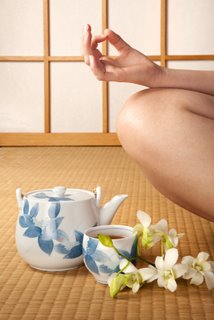
balance
Out of Gas
Many of my patients say they can’t understand why they don’t recover from stressful situations like they used to. Things they would normally brush off as “no big deal” continue to affect them long after they should. But this shouldn’t come as a surprise. As their body has adapted to the elevated levels of stress in their lives, their bounce-back ability has steadily declined. By the time they finally notice their body can’t cope, they’re likely already running on empty.
The body’s ability to adapt to the onslaught of stress has long fascinated researchers. Hans Selye, MD, identified the stages of burnout in the 1930s when he described what he called general adaptation syndrome (GAS). Selye originally detailed three stages, but newer research has expanded them to four.
Stage One: Adrenal stress. At this level, you may feel tired or, alternately, mildly stimulated or hyped up; you have trouble falling asleep, catch frequent colds, and maybe even other viral or bacterial infections more easily; you may suffer from headaches, general aches and pains, and mild gastrointestinal disturbances.
Stage Two: Adaptation. If your stress continues unabated, your body may very well adapt to it—as though this level of stress were normal. At this point your body has figured out how to withstand the heightened levels of cortisol and adrenalin coursing through it without apparent injury or damage, and your stage-one symptoms may actually appear to lessen. Think of this stage as the lull before the storm
Stage Three: Adrenal exhaustion. In the face of continuous high levels of stress, your body’s ability to adapt gradually lessens and the first-stage symptoms start to return in a more severe way. In this third stage, the body loses its capacity to resist stimuli that it had previously handled with ease. That means you may suddenly become allergic to things that never bothered you before or get sick over and over again. You may notice all sorts of seemingly unrelated symptoms like insomnia, PMS, low sex drive, low sperm count, difficulty conceiving, anxiety or irritability, more severe gastrointestinal problems, high blood pressure, heart palpitations, and weight gain (or loss).
Stage Four: Physical burnout. Eventually, if you don’t address the things that continue to cause stress in your life—like overwork, personal grief, a demanding job, or a bad relationship—your body’s ability to resist or adapt drops below normal. New symptoms may appear, and your old symptoms may return with a vengeance. At this point you are completely exhausted and fall asleep easily, but you have problems staying asleep. This stage of burnout further breaks down your immune system and can lead to all sorts of chronic illnesses like depression, hypoglycemia, GERD (acid reflux), colitis, chronic fatigue, and even alcohol or drug abuse. Alas, that’s not all that could happen if you don’t tend to your stress levels. Should you have a genetic predisposition to any type of autoimmune disease or severe disorder—rheumatoid arthritis, fibromyalgia, multiple sclerosis, metabolic syndrome, or diabetes—adrenal depletion may trigger its onset.
Depleted adrenal glands lie at the core of burnout. And since all hormones are interrelated, the loss of adrenal function leads to a breakdown in the endocrine and immune systems as well, in the signaling system known as the HPA axis (the hypothalamus, pituitary, and adrenal glands). In this system, the hypothalamus, which acts as the body’s continuous scanning system and ultimate regulator of hormone and organ function, constantly communicates to the pituitary to direct the release of hormones. A 24-7 feedback loop between these glands adjusts to our ever-changing environment, stresses, and needs. If the brain detects a deficiency in one area of the body, it will try, through this HPA axis, to overcome it and balance the system. But when the adrenals (an intricate part of the axis that responds to stressors) burn out and can no longer respond, the whole system breaks down, and the thyroid, digestive system, blood sugar regulation, and sex hormones all suffer as a result.
Turning Burnout Into Balance

into the calm
Chinese medicine has a profound understanding of adrenal burnout, which it calls kidney deficiency, and it looks to specific herbs called tonifiers or adaptogens—in addition to acupuncture, diet, and lifestyle adjustments—to correct the problem.
These herbs have the ability to strengthen the body and, more specifically, the adrenals and the immune system. The most prominent among them, ginseng, has been used in Asia for centuries to increase resistance, stamina, energy, and organ function. Recent research confirms that it acts as an adaptogen in the body, which means that it responds to whatever the body needs without creating unwanted side effects. Adaptogens act more like a super tonic food than a medicine and are not stimulants. Ginseng, reishi mushrooms (and other fungi like cordyceps), rhodiola, astragalus, codonopsis, licorice root, and rehmannia all fall into this class of herbs. Chinese medicine usually combines a number of them in tonic formulas in order to enhance the synergy between them and, thus, the overall effect of each individual herb.
While you can start with a general ginseng or cordyceps formula available at your local health food store, an acupuncturist or doctor of oriental medicine can determine more precisely what your needs are and how best to address them.
Sticking it to Stress
In addition to the tonifying herbs, Chinese medicine has used acupuncture to address imbalance in the body and tune the energetic system for centuries. Interestingly, recent studies have shown that acupuncture has the capacity to actually balance hormones. It causes the body to secrete endorphins, which can typically induce a very relaxed state. Depending on the application, each treatment is designed to reset the system and direct the energy of the body back toward a state of equilibrium. Used in conjunction with the herbs, acupuncture is an effective means of restoring balance and rejuvenating a run-down, burned-out system. Unfortunately, this won’t happen overnight. Even with the best treatment, your body may require six months or more to recover true balance once it has become depleted.
Changing Course
We may live in a high-stress world, but if you’re going to avoid burnout—or reverse whatever level of adrenal deficiency you have—you’ll have to make some conscious changes in the way you navigate life. As a first step, tune in to what your body is telling you and try not to brush off the messages it’s giving you: Tired? Slow down, take a break, go to sleep now. Hungry? Take the time to cook a healthy meal, sit down at the table, and eat.
Next, replenish what has been depleted. Fortunately, Chinese medicine is full of wisdom about how to maintain balance, prevent burnout, and refuel adrenal energy, and the key concept is moderation. I tell my patients to follow these rules:

get enough sleep!
Get enough sleep. Though the amount can vary somewhat, clinical observation still shows that the standard seven to eight hours a night works best for most people. More importantly, the adrenals rejuvenate through the night beginning around midnight—good reason to try to get into bed by 10 p.m., so you’ve got the best shot of being deep into REM sleep when your adrenals start to replenish. If you have trouble sleeping, I suggest trying the Chinese herbal formulas Zizyphus Combination or Bupleurum and Dragonbone formula. Or you can take a combination of L-theanine, 5HTP, and GABA (sublingually) with one of these formulas.
Get the right amount of exercise. This depends more on the individual, but essentially, you need to keep your circulation working regularly by getting some form of cardio workout. Also remember that you should feel good after you exercise. If workouts leave you completely exhausted, you’re probably doing too much, and overtraining can stimulate the adrenal stress response and deplete you as well. If you do train hard, replenish your adrenals by adding yoga, t’ai chi, or qigong to your routine, as the focus on breathing and developing core energy increases your body awareness and leads to profound states of relaxation and, ultimately, to replenishment.
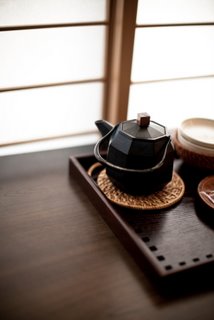
find mindfulness practices like the tea ceremony
Eat a balanced diet and cut back on caffeine. A good diet—one that’s rich in fresh fruits and vegetables, lean protein, quality fats, and whole grains—helps maintain balanced blood sugar levels throughout the day. You can also accomplish this by not over- or undereating and making sure each meal contains some protein, fat, and carbohydrate to provide enough fuel to accommodate your particular lifestyle. Don’t skip breakfast. Your body needs to refuel every morning because the brain uses up the liver’s glycogen storage overnight and will begin to digest muscle for energy unless you eat something. In general, if you exercise a lot, you need more fuel than a more sedentary person. But don’t overeat as this puts additional stress on the digestive and elimination systems.
Get more pleasure from life. Relax. Have more fun. Do things that energize you. Get outside no matter what the season. Be in nature. Feel it, observe it. Allow yourself time to feel and think about things of little importance to the world—but vital to you. Do your best to live a life of appreciation and enjoyment.
None of this is earth-shatteringly new—after all, Chinese medicine has been around a long time. But so has stress. We may have more of it today, but that only underscores our need to prevent burnout. Hans Selye said it isn’t the stress that will kill us, but the way we react to it. With the help of Chinese medicine and simple lifestyle changes, you can control that.
Ancient Wisdom
Long before modern science started exploring burnout, the Chinese had already spent centuries observing what happens in people’s lives under different forms of stress. They called it ya li, which means a force that presses down. The Chinese recognized that ya li came from overwork, lack of sleep, poor diet, illness, exposure to heat or cold for too long, or experiencing prolonged emotions such as grief, sadness, and even excitement. These stresses, they noticed, led to fatigue, frequent illnesses, digestive upset, depression, and, eventually, to chronic states of illness.
The ancient Chinese recognized that it was much easier to treat and prevent serious illness before it became deeply rooted. To this end, they observed a person’s life force (qi), as well as her energy levels, pulses, and the brilliance of her eyes, and corrected subtle imbalances using acupuncture and herbs long before the onset of chronic disease.
Stressed Out?

don't stress...meditate
You’re not the only one.
33% of Americans feel they are living with extreme stress.
75% say that money and work are the leading causes of stress.
48% feel that their stress has increased over the past five years.
Source: American Psychological Association study, 2007
Should You Have an Adrenal Test?
You can have your cortisol levels tested to determine the state of your adrenals, but there’s no reason to do so unless:
You rely on caffeine, sugar, and refined carbs to function.
You sleep poorly or not long enough.
You have digestive problems, weight gain, or other symptoms of burnout.
The adrenal stress index (ASI) or temporal adrenal profile (TAP) test measures the free, unbound form of cortisol, which is secreted in a natural 24-hour circadian rhythm that peaks in the morning and slowly decreases throughout the day. The test requires taking four saliva samples at specific times and gives you a value that helps assess your level of adrenal depletion. Diagnos-Techs Inc. (www.diagnostechs.com) performs the laboratory analysis and can refer you to a practitioner in your area who will administer the test.
Once the test establishes where you are on the burnout continuum, an acupuncturist can prescribe a regimen to address your needs. The standard Western protocol of adrenal glandulars or hormone replacement can mask symptoms rather than truly restore function.
1. Herbs

lemon balm
Adaptogen herbs strengthen and tone the adrenals and the immune system. The following herbs—alone or in combination—meet the needs of the body without side effects. Ginseng, reishi (and other) mushrooms, astragalus, licorice root, codonopsis, rhodiola, rehmannia
2. Diet
A balanced diet is especially important to reduce the effects of stress on your digestive system.
Do eat plenty of fruits, vegetables, and lean protein.
Don’t skimp on breakfast.
Do include healthy fats and plenty of whole grains.
Don’t overeat (try to stop when you’re 80 percent full).
3. Sleep
A good night’s sleep—seven to eight hours—can make a big difference when you’re stressed. Can’t sleep?
Try winding down an hour before bed—no TV, no reading, no work.
Do a few gentle, restorative yoga poses to calm your body and mind.
Take a sleepytime “cocktail” of L-theanine, GABA, and 5HTP.
Enjoy a warm herbal bath before getting into bed.
4. Find More Pleasure
Try something new, whether it’s meditation or tennis or kickboxing.
Pair up with a 4-year-old and take a spin on a merry-go-round or swing on the swings.
Be in nature as often as possible.
Call or get together with a friend who can make you laugh until you cry.
Put aside work tonight, get in bed an hour earlier, and pick up one of the books stacked on your nightstand.
Put yoga on your appointment calendar a few times a week.
Begin and end every day with an expression of gratitude.
Get a massage once a month.
Snag a window table, and sit down at the coffee shop instead of taking your latte to go.
Find something that makes you happy and keep it in your life.
5. Exercise
Exercise daily to increase circulation and revitalize your system. A few caveats:
Do focus on activities you love.
Don’t be a weekend warrior—do something physical every day.
Do 15 to 20 minutes of cardio every day.
Don’t overdo it—too much can also deplete your adrenals.
David Scrimgeour, LAc, has been practicing medicine and acupuncture in Boulder, Colorado, for 18 years.
One of the ultimate Zen like experiences is waking-up from a great slumber refreshed and energized. Your mind and body are harmoniously one, both alert and focused. Having a refreshed mind and body are two keys to a natural and Zen lifestyle. Waking up in the morning should not be a loud and abrupt awakening, but rather it should be a peaceful positive experience. The right natural alarm clock can transition your deep and tranquil sleep into a serene start to consciousness. Imagine a long-resonating Tibetan bell-like chime waking you up to a beautiful morning experience.
The right alarm clock can be the most beneficial investment for you. With our Now & Zen natural alarm clock you are awakened more gradually and thus more naturally. Now & Zen is focused on creating a naturalistic lifestyle, and our clocks are an example of our philosophy.
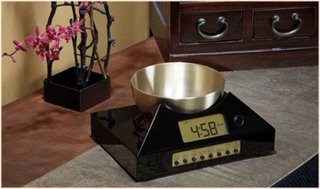
Tibetan Bowl Gong Timer for Meditation and Yoga and a Gentle Alarm Clock
Now & Zen – The Zen Alarm Clock Store
1638 Pearl St.
Boulder, CO 80302
(800) 779-6383
Posted in sleep, Sleep Habits